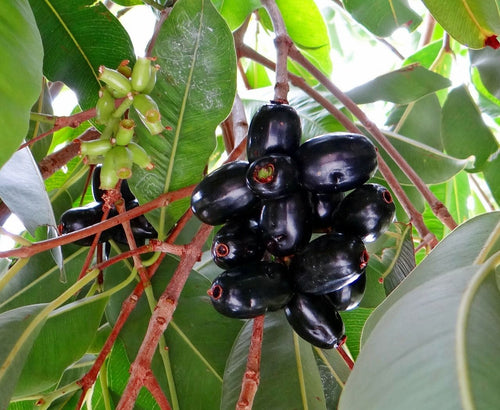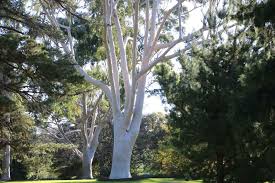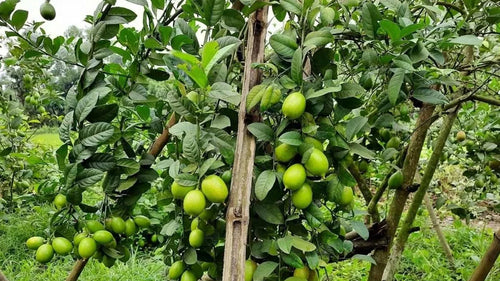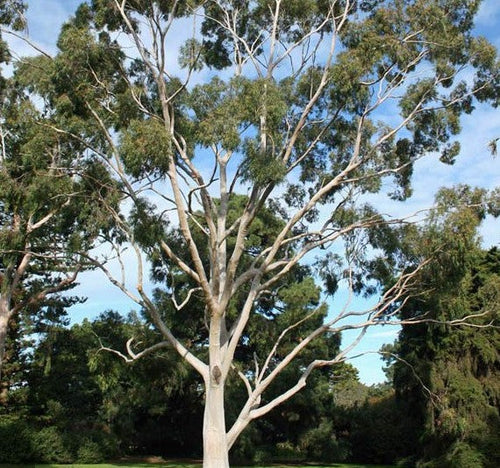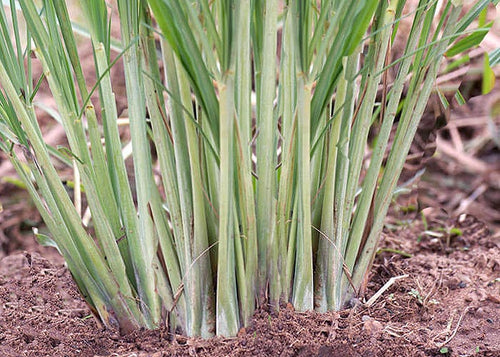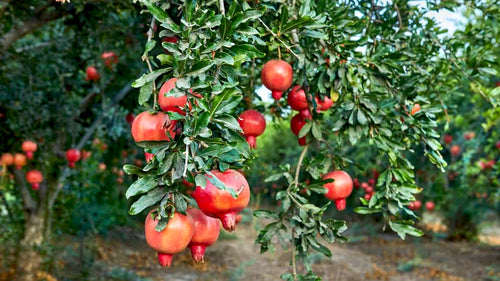“Leafy Legacies: Weber Shandwick Bangalore’s Journey Toward Urban Sustainability”
Weber Shandwick's Bengaluru tree plantation initiative brought employees together to create a vibrant urban forest on a local school campus. Focused Read more
Project Update 3
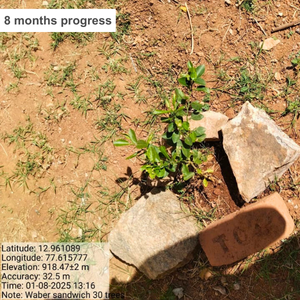
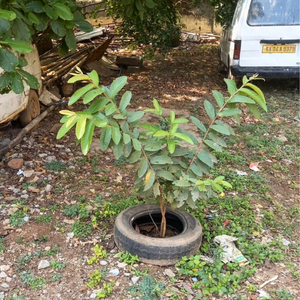
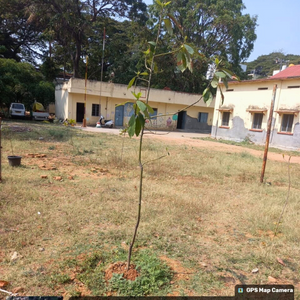
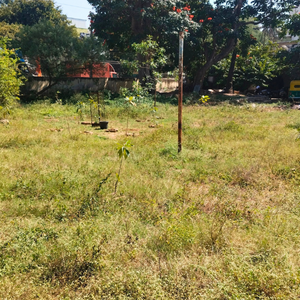
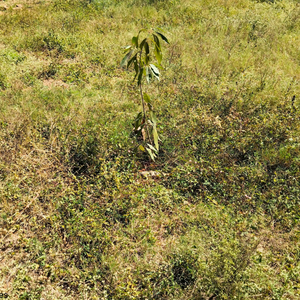
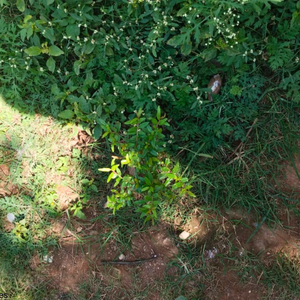

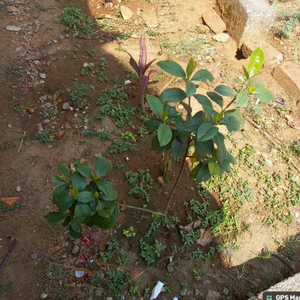
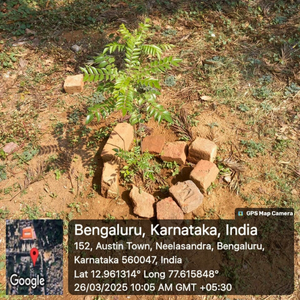
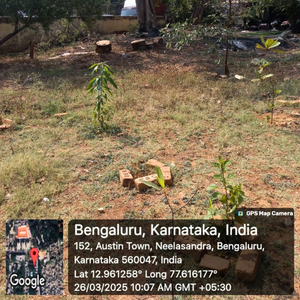
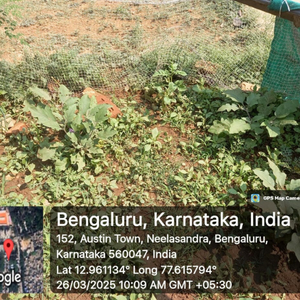
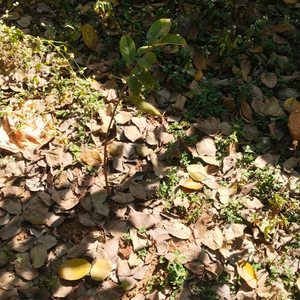

Project Update 2
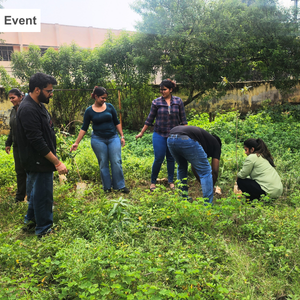
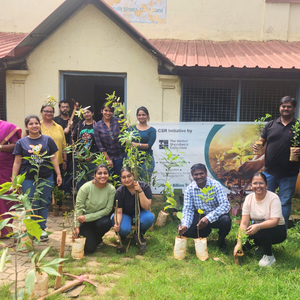
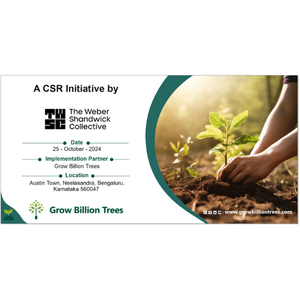
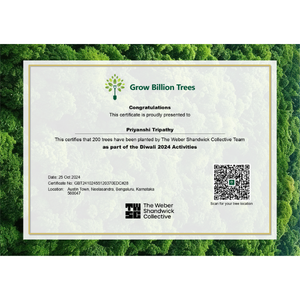
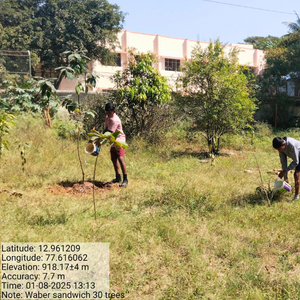
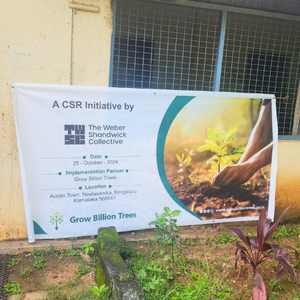
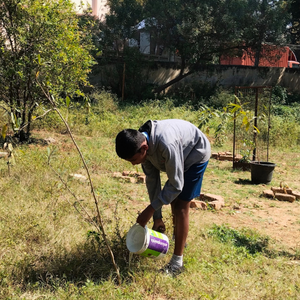
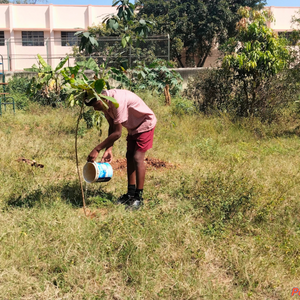
Project Update 1
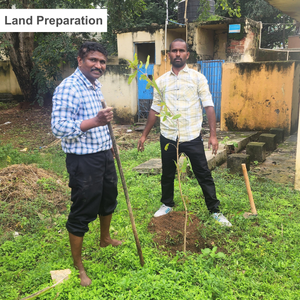
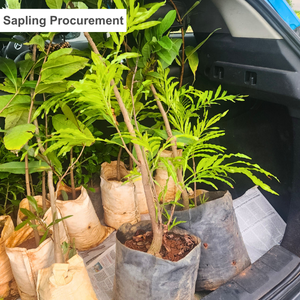
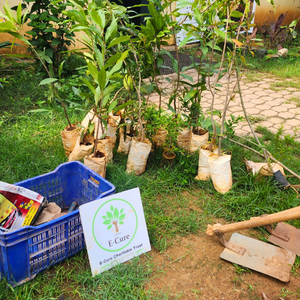


Digital Forest
Forest with 30 Trees planned
Want to plant your tree now?
Plant a Tree @ 299“Leafy Legacies: Weber Shandwick Bangalore’s Journey Toward Urban Sustainability”
Weber Shandwick's Bengaluru tree plantation initiative brought employees together to create a vibrant urban forest on a local school campus. Focused on employee engagement and environmental stewardship, the initiative aimed to enhance the green cover in a meaningful community space, benefiting both the school and the environment.
As part of the Diwali 2024 celebrations, the initiative symbolised the spirit of giving back to nature during the festive season, aligning with the vision of a greener and brighter future. Employees actively participated in planting saplings, transforming the campus into a thriving green zone that provides shade, cleaner air, and a nurturing habitat for local biodiversity. This initiative also allowed employees to connect with students, inspiring a new generation to value and protect the environment, while fostering teamwork and pride among staff.
The initiative focuses on urban forestry, a transformative approach to integrating trees into urban landscapes to address pressing environmental and social challenges. The project contributes to biodiversity enhancement by creating habitats for local wildlife, climate change mitigation by reducing the urban heat island effect and improving air quality, and water management by enhancing soil retention, reducing runoff, and recharging groundwater.
Project Planning & Execution
No. of trees: 30 Trees
Plantation Location: Austin Town, Neelasandra, Bengaluru, Karnataka 560047
Plantation Date: 25th October 2024
Name of Species: Custard Apple, Jamun, Wild Badam, Pomegranate, and Lemon
Species Selection & Its Benefits:
The selection of species such as Custard Apple, Jamun, Wild Badam, Pomegranate, and Lemon was made with a focus on ecological suitability, economic value, and long-term sustainability. Custard Apple is a drought-tolerant fruit tree that enriches the soil, supports pollinators, and offers seasonal income to farmers. Jamun, a native species rich in antioxidants, not only provides nutritional benefits but also supports biodiversity and helps recharge groundwater through its deep roots.
Wild Badam contributes to rapid green cover, offers shade, sequesters carbon, and enhances the local microclimate. Pomegranate, known for its resilience and market demand, boosts farmer income while contributing to nutritional security. Lemon trees, with their year-round fruiting and high vitamin C content, provide consistent economic returns and naturally support pest control and pollination.
Together, these species enhance biodiversity, improve soil and water health, and strengthen the livelihoods of local communities.
Beneficiaries Details
-
Target Population: Employees, stakeholders, and local community members of Karnataka
-
Age Group: All age groups focus on adults to seniors
-
Gender: Inclusive of all genders
-
Social & Economic Status: Open to all social and economic backgrounds, emphasizing community involvement
Planting Methodology and Its Advantages
Urban Forest: An urban forest is a network of trees, shrubs, and vegetation strategically planted in urban areas to enhance biodiversity, improve air quality, reduce the urban heat island effect, and provide green spaces for community well-being. It helps mitigate climate change by absorbing carbon dioxide, promotes mental health through accessible green areas, and supports local wildlife by creating habitats. Urban forests play a vital role in building resilient, sustainable cities that benefit both the environment and the people who live in them.
Advantages of Urban Forest
-
Climate Regulation and Cooling Effect: Urban forests help mitigate the urban heat island effect by providing shade and cooling through transpiration, lowering temperatures in cities, reducing the need for air conditioning, and conserving energy.
-
Improved Air Quality: Trees absorb pollutants like carbon dioxide, nitrogen oxides, and particulate matter, improving air quality and reducing the risk of respiratory illnesses in urban areas.
-
Stormwater Management and Flood Prevention: Urban forests improve the soil’s ability to absorb and retain water, reducing stormwater runoff, preventing flooding, and promoting groundwater recharge, thus helping manage water resources efficiently.
-
Soil Erosion Control: The deep root systems of trees prevent soil erosion, especially in areas with heavy rainfall or steep slopes, stabilizing the land and reducing soil loss in urban environments.
-
Aesthetic and Recreational Value: The transformation of unused spaces into green zones adds aesthetic value to the area and provides employees and local communities with recreational spaces, making the workplace more enjoyable.
-
Enhanced Community Engagement and Well-being: Urban forests provide accessible green spaces where communities can engage in recreational activities, improving mental health, reducing stress, and fostering a sense of environmental stewardship among residents and employees.
-
Increased Property Value: Properties located near urban forests or green spaces tend to have higher market values, benefiting local property owners and increasing the overall appeal and livability of the area.
-
Noise Reduction: Urban forests act as natural sound barriers, reducing noise pollution and creating quieter, more peaceful surroundings.
Activities During Tree Plantation
The tree plantation drive in Bangalore was a remarkable display of community spirit and environmental commitment. Participants came together with enthusiasm and a shared purpose, creating an atmosphere of unity and determination to contribute to a greener city. The event was well-organised, with meticulous planning ensuring that every aspect of the drive, from site preparation to sapling placement, was executed smoothly.
Pits were strategically dug in advance to support healthy growth, and additional pits were created to allow participants to engage more actively in the planting process. Many took a keen interest in learning about the selected tree species and the positive environmental impact of their efforts.
The experience in Bangalore was both impactful and inspiring. Participants immersed themselves fully in the activity, and their smiles and sense of pride reflected the fulfilment and joy that came from being part of a meaningful environmental initiative.
Conclusion Elements
Impact
Direct Impact
|
Parameters |
Values |
References |
|
No. of Trees Planted |
30 |
|
|
Green Cover (Acres) |
0.002 |
|
|
Carbon Sequestration Potential (KG) |
20 |
Small to medium-sized trees can sequester around 10–48 kilograms (22–106 pounds) of CO₂ annually. https://onetreeplanted.org/blogs/stories/how-much-co2-does-tree-absorb |
|
Carbon Sequestration by 30 mature trees ( Tons/year) |
0.6 Tons |
No. of Trees x Carbon Sequestration by 1 mature trees per year |
|
Carbon Credit Equivalent |
0.6 |
One carbon credit is equivalent to one tonne of carbon dioxide or the equivalent amount of another greenhouse gas. |
|
Carbon Footprint of an avg Indian Citizen (Tons/Year) |
1.8 |
|
|
Offsets Annual Carbon Footprint of (Adults) |
1 |
Carbon offset by 30 mature trees per year / Carbon Footprint of an avg Indian Citizen per year |
* This impact analysis is forward-looking (An urban-forest project matures in 3-5 years)
Indirect Impact
Community Impact
-
Improved Public Health: By improving air quality and reducing urban heat, the project indirectly contributes to better public health. The presence of green spaces encourages outdoor activities, which can reduce stress levels, promote mental well-being, and decrease the incidence of respiratory diseases.
-
Environmental Awareness: Involving communities in urban forestry raises awareness about environmental conservation and promotes sustainable practices in daily life.
-
Employee Morale: The initiative fostered a sense of pride and connection among employees, strengthening team bonds and their alignment with the company’s values.
-
Inspiration for Change: By showcasing the potential of urban forestry, the project has encouraged other organizations and local communities to undertake similar initiatives.
-
Cultural Shift: The initiative instilled a mindset of sustainability and environmental care among participants, creating advocates for green practices in their personal and professional lives.
Environmental Impact
-
Carbon Sequestration: The trees planted through Weber Shandwick’s urban forestry initiative absorb carbon dioxide, acting as carbon sinks and helping mitigate climate change by reducing greenhouse gas emissions.
-
Soil Health Improvement: The tree planting initiative enhances soil health by enriching it with organic matter, improving soil fertility and structure, which supports the growth of surrounding vegetation.
-
Erosion Prevention: Tree roots help stabilize the soil in urban areas, preventing erosion caused by wind and water, while safeguarding nearby properties and infrastructure from potential damage.
-
Biodiversity Conservation: By creating green spaces, the initiative supports local biodiversity, providing habitats for various species, pollinators, and beneficial insects, and enhancing the ecological balance in urban areas.
-
Water Cycle Regulation: The urban forestry project helps regulate the water cycle by improving water retention in the soil, recharging groundwater levels, and reducing surface runoff, leading to a more balanced and sustainable urban environment.
-
Microclimate Regulation: Trees planted through this initiative moderate temperature extremes, reduce wind speeds, and increase humidity, creating a favourable microclimate for both the community and the urban ecosystem.
Achievements
SDG Goals Achieved through Urban Forest
-
SDG 3: Good Health and Well-Being - Weber Shandwick’s urban forestry initiative enhances air quality and creates green spaces that promote physical and mental well-being. By reducing pollution and stress in urban environments, the project encourages healthier lifestyles and improves overall community health.
-
SDG 6: Clean Water and Sanitation - Trees play a crucial role in water conservation by enhancing groundwater recharge, reducing surface runoff, and improving overall water retention. Weber Shandwick's initiative supports sustainable urban water systems through afforestation and green infrastructure.
-
SDG 7: Affordable and Clean Energy - By mitigating the urban heat island effect, Weber Shandwick’s tree plantation efforts help lower ambient temperatures and reduce reliance on artificial cooling. The shade provided by trees enhances energy efficiency and promotes a more sustainable urban climate.
-
SDG 8: Decent Work and Economic Growth - The initiative generates employment opportunities in tree planting, maintenance, and environmental sustainability projects. Weber Shandwick contributes to local economic growth by supporting green jobs and fostering sustainable livelihoods.
-
SDG 9: Industry, Innovation, and Infrastructure - Weber Shandwick integrates urban forestry into city planning, promoting green infrastructure solutions that enhance environmental resilience and improve the quality of life in urban areas.
-
SDG 10: Reduced Inequalities - The initiative ensures inclusivity by engaging employees from diverse backgrounds in environmental conservation. By creating accessible green spaces, Weber Shandwick promotes environmental equity and ensures that all communities, including marginalized groups, benefit from cleaner air, mental well-being, and recreational opportunities.
-
SDG 11: Sustainable Cities and Communities - Weber Shandwick’s commitment to urban afforestation contributes to creating more sustainable and resilient cities by increasing green cover, improving air quality, and enhancing urban biodiversity.
-
SDG 12: Responsible Consumption and Production - The project reflects Weber Shandwick’s dedication to sustainable practices by encouraging responsible resource use, reducing waste, and promoting eco-friendly environmental strategies.
-
SDG 13: Climate Action - Weber Shandwick’s urban forestry initiative actively supports climate action by sequestering carbon, reducing greenhouse gas emissions, and mitigating climate change effects through the expansion of green spaces.
-
SDG 15: Life on Land - The plantation drive enhances biodiversity by providing essential habitats for wildlife and fostering the restoration of urban ecosystems, aligning with Weber Shandwick’s environmental conservation efforts.
-
SDG 16: Peace, Justice, and Strong Institutions - By fostering inclusive decision-making and community-led governance, Weber Shandwick strengthens local environmental stewardship, ensuring transparency and collaboration for sustainable urban development.
-
SDG 17: Partnerships for the Goals - The initiative thrives on collaboration with local communities, environmental organizations, and partners such as Grow Billion Trees. Weber Shandwick strengthens environmental partnerships to drive impactful urban sustainability and afforestation efforts.
ESG Achieved through Urban Forest:
-
Environmental Impact: Weber Shandwick’s urban forestry initiative plays a crucial role in enhancing environmental sustainability. By planting a diverse range of tree species, the company promotes biodiversity, creates vital habitats for wildlife, and strengthens local ecosystems. These trees serve as natural carbon sinks, reducing CO₂ levels and contributing to climate change mitigation. Additionally, the initiative enhances urban climate resilience by regulating temperatures, reducing the heat island effect, and improving water retention, ensuring a healthier and more sustainable environment for future generations.
-
Social Impact: Weber Shandwick’s urban forestry initiative fosters community engagement and well-being by encouraging local participation in tree planting and environmental awareness. The green spaces created enhance air quality, promote physical activity, and improve public health. Additionally, the project generates job opportunities in tree planting and maintenance while promoting social equity by ensuring access to green spaces for all, including marginalized communities. These efforts contribute to building a more inclusive, resilient, and sustainable urban environment.
-
Governance Impact: Weber Shandwick demonstrates strong leadership and commitment to sustainability through its urban forestry initiative. The company ensures transparency and accountability by effectively communicating project plans and outcomes to stakeholders. By collaborating with environmental organizations and local communities, Weber Shandwick amplifies the impact of its efforts. This approach aligns with best governance practices, achieving environmental and social goals while promoting long-term sustainable growth.
Building Communities
One of the most impactful outcomes of Weber Shandwick’s urban forestry initiative was the sense of unity and collaboration it cultivated. By involving employees, local communities, and volunteers, the project became a collective mission to create sustainable urban green spaces, fostering a shared commitment to a greener future.
-
Empowering Communities: Weber Shandwick’s urban forestry initiative empowered participants to become active contributors, equipping them with knowledge about urban forestry practices and fostering a sense of ownership. This empowerment strengthened their connection to the environment and reinforced their role as environmental stewards, ensuring long-term sustainability and community engagement.
-
Fostering Partnerships: Weber Shandwick's urban forestry initiative united diverse stakeholders, including Weber Shandwick, Grow Billion Trees, and local communities, showcasing the power of collaboration in achieving environmental and social goals. By working together, these partnerships amplified the impact of the project, fostering a collective commitment to sustainability.
-
Creating a Ripple Effect: As communities witnessed the benefits of Weber Shandwick's urban forestry initiative, their enthusiasm sparked inspiration, encouraging others to adopt similar practices. This cascading impact amplified the initiative’s reach, fostering a broader movement towards sustainable urban green spaces.
This initiative demonstrates that environmental sustainability thrives when rooted in collective effort. It’s not just about planting trees—it’s about planting hope, collaboration, and a shared vision for a healthier and greener future.
Commitment by Grow Billion Trees
-
Ensuring Tree Survivability: GBT prioritizes native species, continuous monitoring, and soil health improvement using organic fertilizers. These efforts ensure sustainable growth and benefit communities.
-
Transparency & Accountability: GBT provides detailed reports on tree growth, survival rates, and carbon benefits, using geo-fencing and regular updates to maintain transparency and effectiveness.
-
Sustainable Plantation Efforts: GBT implements projects that balance environmental, social, and economic goals, addressing issues like urban heat islands and degraded farmlands. These efforts promote ecological balance, livelihoods, and long-term climate resilience.
-
Enhancing Ecosystem Health: By selecting native species and creating diverse habitats, GBT enhances biodiversity and ecosystem resilience, ensuring long-term ecological health and supporting wildlife.
-
Long-Term Impact: GBT’s initiatives tackle environmental challenges, foster climate resilience, and promote sustainable development while reducing carbon footprints.
Acknowledgment
We at Grow Billion Trees extend our heartfelt gratitude to all those who have contributed to the success of Weber Shandwick’s urban forestry initiative. This project, which merges environmental sustainability with employee engagement, would not have been possible without the dedication and collaboration of Weber Shandwick employees, local authorities, and partners. Their collective efforts in planting and nurturing trees are fostering a greener, healthier, and more resilient urban environment. We sincerely appreciate their commitment to enhancing biodiversity, improving air quality, and building a sustainable future for all.
To The Weber Shandwick Collective: We extend our heartfelt gratitude to The Weber Shandwick Collective for their unwavering support and commitment towards environmental sustainability. Their active participation in the plantation drives across Bengaluru reflects a deep sense of corporate responsibility and a genuine effort to give back to nature. By aligning their Diwali 2024 celebrations with a meaningful green initiative, The Weber Shandwick Collective has set a commendable example of how purposeful action can create lasting ecological and community impact. We are grateful for their partnership in this journey toward a greener, healthier future.
To Our Ground Partners and Volunteers: Your expertise, dedication, and passion for environmental sustainability have been crucial to the success of Weber Shandwick’s urban forestry initiative. Through your collaborative efforts, we have made meaningful strides in creating greener urban spaces and promoting biodiversity. Your contributions have not only enhanced the environment but also fostered community engagement and awareness. Together, we are building a more sustainable future, and we look forward to continuing our partnership in creating a greener, healthier world for all.
Thank you for your unwavering support and commitment.
Closing Remarks
We are proud to have partnered with The Weber Shandwick Collective in their inspiring journey toward environmental sustainability through this urban forestry initiative in Bengaluru. This project has added meaningful green cover to the city’s landscape while fostering a culture of ecological awareness and active participation. It highlights the power of collective action in creating resilient and sustainable urban spaces.
Each tree planted is more than just a sapling—it’s a symbol of commitment to a healthier environment, cleaner air, and a more balanced ecosystem. The enthusiasm and dedication shown by the Weber Shandwick Collective team demonstrate that when individuals and organisations unite with a shared purpose, impactful change takes root.
As we continue on this path, we remain committed to scaling such green initiatives and encouraging more communities and corporations to embrace sustainability. Together, we are planting not just trees, but the seeds of a greener, more hopeful future for all.
A heartfelt thank you to everyone who contributed to this effort—let’s continue to grow stronger, greener, and more sustainable, one tree at a time.
Trees for Corporates
Trending
Most Popular
Urban Green Spaces
Urban green spaces are like the lungs of a city, providing essential oxygen while also giving us a break from the concrete jungle. At Weber Shandwick Bangalore, we’re all about transforming the urban landscape into vibrant green havens through our tree plantation initiatives. Not only do these green spaces beautify our environment, but they also help cool down city temperatures, reduce pollution, and improve our overall well-being. Imagine sipping your morning coffee surrounded by the soothing rustle of leaves and the cheerful chirping of birds! It's a little slice of paradise amidst the hustle and bustle. By planting trees and creating lush urban forests, we’re not just planting a few seeds; we’re cultivating healthier communities and a more sustainable future. So, whether you’re an urbanite looking for a peaceful escape or a tree-hugging enthusiast, our green spaces are the perfect remedy for city life’s chaos.
Biodiversity in Cities
local birds serenading you from their newly built nests, butterflies flitting about, and bees buzzing merrily from flower to flower. Our urban forests provide the perfect habitat for this vibrant ecosystem. By planting a variety of native trees, we’re creating a buffet of choices for local wildlife, promoting biodiversity, and making our city a more lively place. Plus, the more diverse the ecosystem, the better it can adapt to changes. So, join the party and celebrate the rich biodiversity right in your backyard!
Carbon Footprint Reduction
Reducing our carbon footprint is like putting a green cape on our cities! At Weber Shandwick Bangalore, we’re not just planting trees; we’re superheroes fighting climate change one sapling at a time. Trees are nature’s very own carbon-sucking machines, absorbing CO2 while releasing oxygen. By engaging in tree plantation, we contribute to a cleaner, greener atmosphere and help combat the dreaded greenhouse effect. Think of it as a massive group effort where every tree planted helps to offset carbon emissions and fight global warming. Plus, these leafy giants not only cool down our cities but also enhance air quality, making our urban environment more livable. So, join our quest to shrink that carbon footprint and save the planet—one tree at a time!
Employee Engagement in Sustainability
Employee engagement in sustainability is like getting everyone on board for a feel-good team-building exercise! At Weber Shandwick Bangalore, we believe that tree planting is the perfect way to boost morale while saving the planet. Imagine a day where colleagues roll up their sleeves, dig into the earth, and bond over planting trees—talk about a workplace revolution! Not only does this initiative give employees a sense of purpose and camaraderie, but it also nurtures a culture of environmental awareness. When employees see firsthand the impact of their efforts, they become more invested in sustainable practices both at work and in their daily lives. So, let’s dig in and create a greener tomorrow while having fun today!
Sustainable Urban Development
Sustainable urban development is like designing a city that grows on its own green terms! At Weber Shandwick Bangalore, our tree plantation initiative embodies this concept by merging eco-friendliness with urban living. We’re not just throwing a few trees into the mix; we’re thoughtfully crafting urban forests that support biodiversity, enhance air quality, and improve the quality of life for city dwellers. Imagine walking through streets lined with trees, where every block feels like a mini-forest! This sustainable approach creates a harmonious balance between urban infrastructure and nature, promoting resilience and livability. With our commitment to sustainable urban development, we aim to inspire other companies to join us in cultivating greener cities for everyone to enjoy!
Climate Resilience
Climate resilience is like giving cities their very own superhero cape to withstand the unpredictable weather! At Weber Shandwick Bangalore, our tree plantation initiative plays a pivotal role in helping urban areas adapt to climate change. Trees act as natural shields against extreme weather, providing shade, reducing heat, and managing stormwater runoff. By planting more trees, we’re creating a buffer that helps our city thrive even in the face of climate challenges. Imagine urban forests soaking up rainwater, preventing flooding, and keeping temperatures down during heatwaves. It’s nature’s way of reminding us that we can tackle climate change together. So, let’s plant trees and empower our cities to bounce back stronger!
Community Engagement in Tree Planting
Community engagement in tree planting is like throwing a neighborhood block party—everyone’s invited! At Weber Shandwick Bangalore, we believe that the more, the merrier when it comes to planting trees. Our initiatives not only bring employees together but also involve local communities, fostering a sense of belonging and shared responsibility. When we plant trees as a community, we’re not just adding greenery; we’re building relationships and inspiring collective action. Residents can take pride in nurturing their urban forests, creating a green legacy for future generations. So, roll up your sleeves, grab a shovel, and let’s make our neighborhoods more beautiful and sustainable—together!
Green Infrastructure
Green infrastructure is like giving our cities a makeover with Mother Nature’s touch! At Weber Shandwick Bangalore, we’re all about integrating nature into urban design through our tree plantation initiatives. Think of it as landscaping on a grand scale—where trees, parks, and green roofs work together to create a sustainable urban ecosystem. Green infrastructure not only enhances the aesthetic appeal of our cities but also provides crucial environmental benefits, such as improved air quality and reduced flooding. By incorporating trees into our urban planning, we’re making our cities more resilient, livable, and, let’s face it, a lot more Instagrammable. So, let’s transform our concrete landscapes into green wonders—one tree at a time!
FAQ
What is the goal of Weber Shandwick Bangalore's tree plantation initiative?
Weber Shandwick Bangalore's tree plantation initiative aims to create sustainable urban forests while engaging employees in environmental stewardship. By planting native trees, we contribute to reducing carbon footprints, enhancing biodiversity, and improving air quality in urban areas. The initiative is part of our broader corporate social responsibility efforts to make cities greener and more livable for future generations.
How does Weber Shandwick Bangalore involve employees in the tree plantation initiative?
Employees actively participate in the planting and nurturing of trees as part of our urban forest initiative. This hands-on approach allows them to contribute directly to sustainability, fostering a sense of teamwork and purpose. Employees help with planting and watering trees, which enhances their connection to nature and reinforces our commitment to environmental responsibility.
What is an urban forest, and why is it important?
An urban forest is a collection of trees and greenery within a city or urban area, providing numerous environmental, social, and health benefits. Urban forests improve air quality, reduce city temperatures, and support biodiversity by creating habitats for wildlife. Weber Shandwick Bangalore's focus on urban forests aims to promote sustainability and enhance the quality of life for city residents.
How does the tree plantation initiative align with Weber Shandwick’s sustainability goals?
Our tree plantation initiative is a core part of Weber Shandwick’s sustainability strategy. By planting trees and creating urban forests, we reduce carbon emissions, support biodiversity, and promote climate resilience. This initiative aligns with global environmental goals, including the UN’s Sustainable Development Goals (SDGs), to create greener, more sustainable cities for future generations.
Why is Weber Shandwick partnering with Grow Billion Trees for this initiative?
Partnering with Grow Billion Trees allows Weber Shandwick Bangalore to leverage their expertise in reforestation and sustainability. Their knowledge helps us select the right tree species, ensure proper planting practices, and maintain long-term sustainability. This collaboration strengthens our efforts to create a lasting environmental impact through well-governed, impactful initiatives.
How does Weber Shandwick Bangalore’s tree plantation initiative benefit the environment?
Our initiative helps mitigate climate change by absorbing carbon dioxide, reducing the urban heat island effect, and improving air quality. Planting trees also fosters biodiversity, creating habitats for local wildlife. Over time, urban forests contribute to climate resilience by managing stormwater, reducing soil erosion, and promoting a more sustainable urban ecosystem.
What long-term impact does Weber Shandwick Bangalore’s urban forest initiative aim to achieve?
The long-term goal of our urban forest initiative is to create sustainable green spaces that benefit both the environment and the community. By planting native trees, we aim to reduce carbon emissions, support biodiversity, and improve urban air quality. These efforts contribute to building climate-resilient cities and fostering environmental awareness among employees and the community.
How does tree plantation contribute to employee engagement at Weber Shandwick Bangalore?
Tree plantation offers employees the opportunity to engage in meaningful environmental work, fostering teamwork, a sense of purpose, and connection to nature. By participating in these activities, employees not only contribute to the company’s sustainability goals but also enhance their personal well-being through outdoor activities, reducing stress and promoting environmental stewardship.
What are the key environmental benefits of urban forests?
Urban forests provide multiple environmental benefits, including improved air quality, reduced urban heat, and support for biodiversity. They act as carbon sinks, helping to mitigate climate change. Urban forests also reduce noise pollution and manage stormwater, preventing soil erosion and flooding. Weber Shandwick Bangalore’s tree plantation initiative contributes to these benefits, making cities greener and healthier.
How does Weber Shandwick ensure the sustainability of its tree plantation initiative?
Weber Shandwick ensures sustainability by partnering with Grow Billion Trees, who provide expertise in tree selection, planting practices, and long-term maintenance. Our initiative focuses on planting native species, ensuring biodiversity and resilience. We also implement systems to monitor tree growth and health, ensuring that the urban forests we create continue to thrive and benefit the environment for years to come.
- Choosing a selection results in a full page refresh.
- Opens in a new window.



